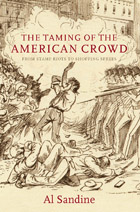Re: Why do people often vote against their own interests?
What is needed is a way to focus the People's pain and anger in a simple but effective way in order to bring about a peaceful "revolution" in America . . . .
I suggest a one-page "manifesto" that most people can agree on. It should contain 5 or so basic "demands" of the People, and should have a title such as The People's Economic Reform Act. The basic thrust will be to divest the Financial Elite of power, and change the distribution of wealth in the US.
The idea is that people will send it to their political representatives, and demand that they publicly endorse it . . . threatening that they will only vote for those politicians who do endorse it. Furthermore, any politician that endorses it, but subsequently fails to enact or vote for a bill that puts it into law, will lose the people's vote at the very next election.
When this "manifesto" goes viral on the internet, it will be a fait accompli . . . .
What is needed is a way to focus the People's pain and anger in a simple but effective way in order to bring about a peaceful "revolution" in America . . . .
I suggest a one-page "manifesto" that most people can agree on. It should contain 5 or so basic "demands" of the People, and should have a title such as The People's Economic Reform Act. The basic thrust will be to divest the Financial Elite of power, and change the distribution of wealth in the US.
The idea is that people will send it to their political representatives, and demand that they publicly endorse it . . . threatening that they will only vote for those politicians who do endorse it. Furthermore, any politician that endorses it, but subsequently fails to enact or vote for a bill that puts it into law, will lose the people's vote at the very next election.
When this "manifesto" goes viral on the internet, it will be a fait accompli . . . .

Comment